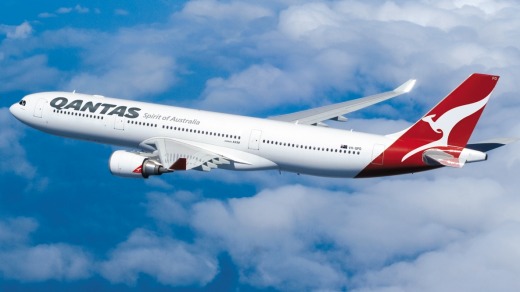
The Federal Circuit Court have decided – “YES” Qantas are not obliged to pay sick leave (personal/carers leave) if an employee on lawful stand down.
WHY?
Qantas held the position it had lawfully stood down the employees and was subsequently not required to pay personal/carers leave as the employees were not entitled to take leave from work they were not required to perform.
Keywords: COVID-19, Fair Work Commission, Stand down, personal leave, sick leave, Coronavirus
COVID-19 has wreaked havoc on the airline industry none moreso than Qantas.
Qantas acted early in an effort to keep the organisation afloat, one major piece was standing down a large number of staff – the stand down was made under s 524 of the Fair Work Act (Act):
Section 524(1)
Employer may stand down employees in certain circumstances
(1) An employer may, under this subsection, stand down an employee during a period in which the employee cannot usefully be employed because of one of the following circumstances:
(a) industrial action (other than industrial action organised or engaged in by the employer);
(b) a breakdown of machinery or equipment, if the employer cannot reasonably be held responsible for the breakdown;
(c) a stoppage of work for any cause for which the employer cannot reasonably be held responsible.
[our emphasis added]
In the case of Communications, Electrical, Electronic, Energy, Information, Postal, Plumbing and Allied Services Union of Australia v Qantas Airways Limited [2020] FCA 656 – the AWU, AMWU and TWU brought a dispute against Qantas. Mainly, personal/carers leave should be payable during a stand down period. This would obviously have massive ramifications as employees would be able to claim sick leave whilst being stood down – something that would be quite arguable especially for those who may believe they have contracted COVID-19 or showing symptoms. Any leave paid out would reverse any benefits costs wise that Qantas was trying to alleviate during the crisis.
The Court made note of the severe impact COVID-19 had on the travel industry in which all international flights were grounded practically overnight. In this regard, the Court discussed the parameters of the question as to whether an “employee cannot be usefully employed” and determined that the “economic consequences of the employer” must be taken into consideration.
Whilst Qantas employees were otherwise willing to perform their contractual services, the financial burden of maintaining their employment at a time when there was a limited demand for Qantas’ services meant that the employees could no longer be usefully employed.
The Court accepted the stand down implemented was to provide “financial relief” to Qantas from “paying wages in circumstances where, through no fault of its own, [Qantas] has no work that the employees can usefully perform.” Further, the Court identified another purpose for the stand down was “to protect the employees from what would otherwise flow from the termination of their services.”
For these reasons, the Court held Qantas had lawfully stood down the affected employees in accordance with the correct reading of s 524(1) of the Act.
Leave entitlement
Section 96 of the Act confers the entitlement of an employee to access leave as follows:
Taking paid personal/carer’s leave
An employee may take paid personal/carer’s leave if the leave is taken:
(a) because the employee is not fit for work because of a personal illness, or personal injury, affecting the employee; or
(b) to provide care or support to a member of the employee’s immediate family, or a member of the employee’s household, who requires care or support because of:
(i) a personal illness, or personal injury, affecting the member; or
(ii) an unexpected emergency affecting the member.’
The Court referred to the decision of Mondelez v Australian Manufacturing Workers Union [2019] FCAFC in which it was held the entitlement conferred by s 96 of the Act is a “form of income protection” in instances where the employee is unable to perform the duties they are required to perform.
- The Court considered whether employees who were stood down would still be entitled to access personal/carers leave based on the statutory interpretation of s 96.
- The crux of the issue is whether an entitlement existed to take “leave” from otherwise performing work they are not required to perform due to being stood down.
- The Court held that no entitlement existed under s 96 of the Act if the employee was not required to perform work and preferred the submissions of Qantas as follows:
“‘income’ is not being protected if there is no available or required work from which to derive income in the first place”.
Message for Employers
The decision is good news for employers who stood down employees under s 524 of the Act in response to the impact of COVID-19. The Court has acknowledged COVID-19 caused a “stoppage of work” in Qantas’ business operations and on that basis, it must be presumed they will consider its impact on other businesses in further matters determined by the Court.
The Court has also confirmed that an entitlement to personal/carers leave is not available under the Act for employees who are stood down under s 524(1) of the Act.
There has been some indication by the Unions that an appeal may be lodged but for now it does give Employers breathing room. If the stand down has been affected legally then the right to access personal/carers leave will not exist – whether this continues will depend on any appeals on this matter.
For employers who are concerned about their stand downs, stand down process or access to sick leave, we would be happy to assist. We offer an obligation free consultation – please call +61 07 3876 5111
Written By
Jonathan
Mamaril
Director
NB Lawyers
– Lawyers for Employers
[email protected]
+61 (07)
2102 7240

About the Author
Jonathan Mamaril leads a team of handpicked experts in the areas of employment law and commercial law who focus on educating clients to avoid headaches, provide advice on issues before they fester and when action needs to be taken and there is a problem mitigate risk and liability.
